The Life, Faith & Work of Abdul Rahman Muhammad
By Brian E. Muhammad | Last updated: May 1, 2019 - 3:29:59 PMWhat's your opinion on this article?
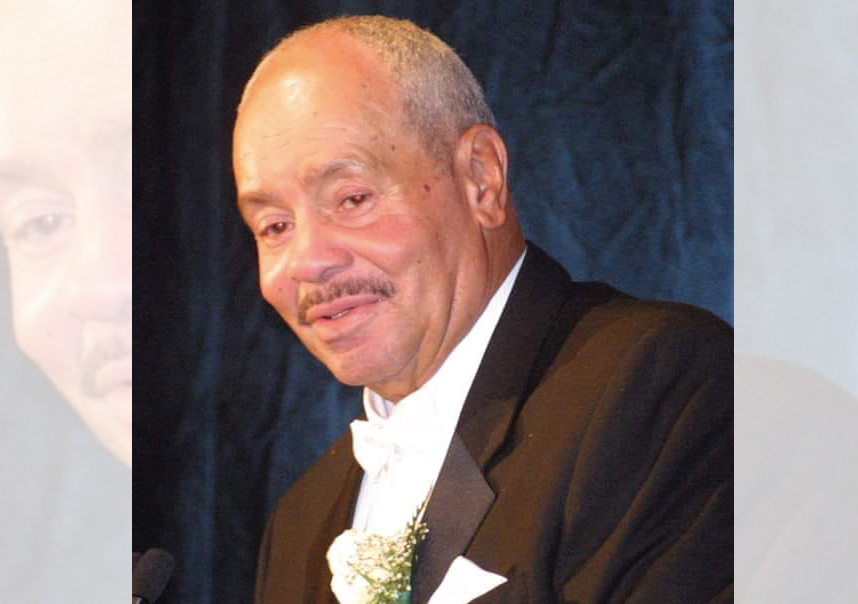
The world lost a giant with the transition of Abdul Rahman Aquil Muhammad, who was a legend in the resurrection and restoration of Black life in America. Men, women and children hurt over his death, but celebrated the life of the Nation of Islam minister who died April 22 in Atlanta, Georgia. He was 87 years old.
Min. Rahman Muhammad was known as the “Rock of the South” because of a tenacity of will and spirit that captivated the Southern Region of the United States in the establishment of Islam and Teachings of the Most Honorable Elijah Muhammad.
Many were positively affected by his work representing Mr. Muhammad and the Honorable Minister Louis Farrakhan in post 1977 efforts to rebuild the Nation of Islam. Because of his service, he is etched in the history of the movement that marks its beginning July 4, 1930 with Master Fard Muhammad, the Great Mahdi and founder of the Nation, making his appearance in North America.
“I watched his growth in the Nation of Islam from a lieutenant and captain in the Fruit of Islam to the most progressive and successful minister that was ever in Atlanta at Mosque Number 15 as well as the Southern Region,” said Minister Farrakhan, writing in the forward of “I Walked With The Great Ones,” the 2011 memoir of the man lovingly referred to as “Min. Rahman.”
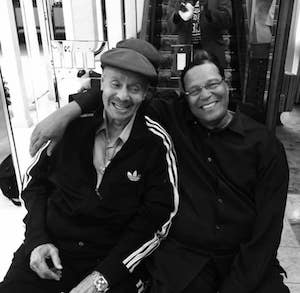
“Our love and friendship for each other is deepened by our love and commitment to the Honorable Elijah Mohammed and His Mission of the Resurrection of our people in America and throughout the world,” the Minister wrote.
Minister Farrakhan described his brother and friend as a “teacher, organizer, and confidante of the Honorable Elijah Muhammad,” saying he “was and is” exceptional.
Minister Rahman called his memoir “I Walked with The Great Ones” but as a revered figure in the Nation of Islam, several generations are saying he was a great one.
“Not only was he a father, a brother, a uncle, he was so important to our community and so important to the youth development today,” said Lakesha Muhammad of Atlanta, who organized a function honoring Nation of Islam pioneers in 2017 called “Still Standing” that included Min. Rahman.
“He was the definition of a Believer in the Nation of Islam,” she said.
In six decades of service Min. Rahman became an institution. His journey from the John Eagan Homes and the streets of Atlanta to the high dignity of Islam was a testament to the profound teachings of Elijah Muhammad to reform Black life. He was very transparent about his life before Islam as a gambler and street hustler.
Humble beginnings
He was born Samuel Saxon, Jr., the second oldest of five children October 1, 1931 in segregated Atlanta. Although he grew up in a household where acquiring higher education was emphasized as a way for Blacks to excel, he opted for the streets. He couldn’t reconcile the dual reality of the projects where Black professionals and the poor and marginalized lived the same existence. The same projects housed doctors, lawyers, hustlers and gamblers.
Such contradictions helped shape his views about racism and life.
He first heard “the teachings” in 1955 in Atlanta, but later joined the Nation in Los Angeles in1956 along with his wife Mildred, who he later renamed Zarifah Rahman Aquil, an educator. From there he relocated to Chicago in 1957 after the Honorable Elijah Muhammad hired his wife as an educator at Muhammad University of Islam—the Nation’s independent school.
In Chicago, he began rising in the ranks when Supreme Captain Raymond Sharrieff made him a Lieutenant and then First Officer of the Fruit of Islam. The name given to the military training of the men who belong to Islam in North America. His leadership ability manifested in Chicago as he along with others established an Honor Guard for the Hon. Elijah Muhammad, an FOI squad specially trained in the security and personal safety of the leader. He served on the security team for a decade.
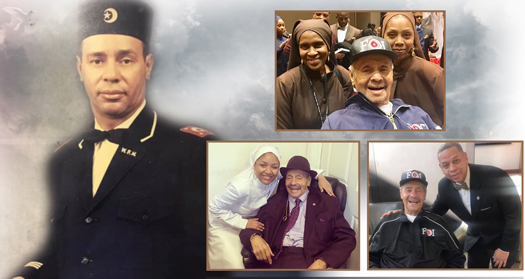
Captain Sam X
The Hon. Elijah Muhammad addressed the believers one night and said, “I need help. I have good help in Chicago but go out and help me elsewhere. I know what I need.” In that moment Min. Rahman knew he had to leave Chicago. He wrote in his memoir his “sole desire” was to help the Messenger of God and give back to what gave him life.
In 1961, he decided to return to the West Coast after Muslims from Los Angeles approached him about helping there. He went to Miami first where there was a struggling temple. He felt Allah (God) would not forgive him if he left the temple in its poor condition. When the Honorable Elijah Muhammad heard his follower was there, he instructed the local minister to make the man Miami’s FOI captain. He stayed in Miami for eight years until 1969. It was in Miami that he “fished” Muhammad Ali into the Nation of Islam. Mainstream media erroneously credits Malcolm X for recruiting the young boxer, but it was “Captain Sam X,” as Min. Rahman was then called, who nurtured and advised the young athlete in boxing and faith.
Along with the great Ali, he “fished” hundreds of people to Islam. Another “big fish,” in Nation of Islam vernacular, was famed psychologist Na’im Akbar who accepted Islam while head of the Department of Psychology at Morehouse College after hearing Min. Rahman. The famed psychologist became a Muslim minister under him in Atlanta.
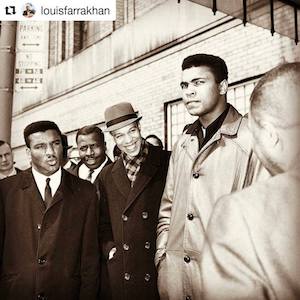
The Rock of the South
From 1969 to 1975, Min. Rahman was sent to Atlanta, as the minister and Southern Regional Representative of the Nation of Islam. His region spanned everything South of Washington, D.C., to the deepest U.S. southern border in Texas. It was in Atlanta that progress was made in economics and education. He led the Muslims to build a strong mosque, two schools, four restaurants, three fish markets, one bakery, a haberdashery, boutique, and a sewing center.
Unity and productivity resulted in two tractor trailer trucks and a refrigerated unit to transport fish. “We sold 100,000 pounds of fish a month,” Min. Rahman told The Final Call in 2004. The imported fish was captured into international waters, frozen and shipped to Nation of Islam mosques for sale under the Honorable Elijah Muhammad’s economic program. Min. Rahman pushed for progress and encouraged the will to make things happen.
In September 1974, the Honorable Elijah Muhammad purchased a building that served as a mosque and school at 1225 Bankhead Highway and then another mosque property was acquired at 735 Fayetteville Rd; SE, on a campus of six acres of land. The school went to the 12th grade with 18 teachers who never missed a paycheck. Mosque attendance was 1,100 to 1,500 every Sunday at both mosques under Min. Rahman’s leadership.
People taught and trained by Min. Rahman bore witness to a level of dedication and character that made him the stalwart figure now celebrated.
“His work speaks for itself,” said Abdul K. Sabir, who served as Muhammad Mosque No. 15 First Officer in the 1970s and as a close friend of Minister Rahman. He was a “brother’s brother” respected in all walks of life throughout the South. A.K. Sabir recalled then-Mayor Maynard Jackson making “Rock the Second Mayor” of Atlanta and giving his FOI captain great influence. “The South was his,” said A.K. Sabir.
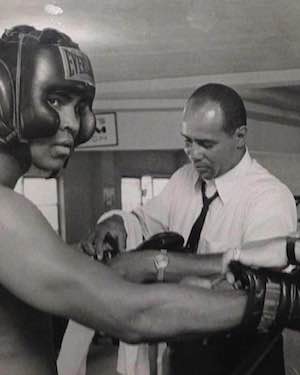
It was the early 1980s when Min. Rahman stood back up to aid Min. Farrakhan in the rebuilding of the Nation of Islam after major changes in 1975 and the total dismantling of the Nation, its economic program and rejection of the message of Elijah Muhammad.
“He had strong faith in Master Fard Muhammad, the Most Honorable Elijah Muhammad and the Honorable Minister Louis Farrakhan,” said Thomas Jehad, who has known Minister Rahman since the 1950s. They were young men coming into the Fruit of Islam and moving up the ranks—Min. Rahman in Chicago and Min. Thomas Jehad on the East Coast. Islam and brotherhood closed the gap of distance and time.
“My love for him? He will live forever in the consciousness in our children and our children’schildren,” Mr. Jehad told The Final Call.
"His faith in the Honorable Elijah Muhammad and the Teachings … is what took him heights that he achieved,” he added.
Although Min. Rahman was not an educated man by this world’s standard, it was the strength of his faith that was stronger than knowledge and the fact that he was a Believer made him successful, observed Mr. Jehad, who also served as a minister for the Hon. Elijah Muhammad and who joined the Minister’s rebuilding effort.
INSIDE STORIES AND REVIEWS
-
-
About Harriett ... and the Negro Hollywood Road Show
By Rabiah Muhammad, Guest Columnist » Full Story -
Skepticism greets Jay-Z, NFL talk of inspiring change
By Bryan 18X Crawford and Richard B. Muhammad The Final Call Newspaper @TheFinalCall » Full Story -
The painful problem of Black girls and suicide
By Charlene Muhammad -National Correspondent- » Full Story -
Exploitation of Innocence - Report: Perceptions, policies hurting Black girls
By Charlene Muhammad -National Correspondent- » Full Story -
Big Ballin: Big ideas fuel a father’s Big Baller Brand and brash business sense
By Bryan Crawford -Contributing Writer- » Full Story






 Click Here Stay Connected!
Click Here Stay Connected!








